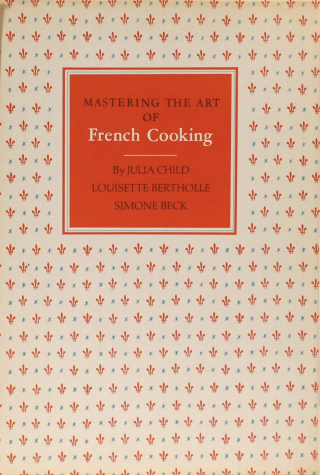It was early the week of Thanksgiving 1959, and the young Knopf editor Judith Jones was trying to tie up loose ends before making the long drive north to Vermont, where her family would convene. She was deep in work when her colleague William Koshland stopped by her desk and handed a thick, unwieldy stack of paper over. Koshland, who hadn’t a clue about cookbooks, asked Jones if she’d weigh in on the submission. Everyone knew that Jones had spent years in Paris and had even run a private supper club out of her apartment on the Rue de Cirque.
Jones eyed the manuscript. The book was huge—750 pages long. “French Recipes for American Cooks by Louisette Bertholle, Simone Beck, and Julia Child,” the cover read. Jones had been searching for a good French cookbook since returning to the States. The American foodscape had shifted radically in the postwar years, with small grocers and specialty shops giving way to supermarkets that kept food in boxes and cans and behind glass. “Everything was going into packages so the ‘poor little woman’ wouldn’t soil herself with cooking, the ignominy of cooking,” Jones told me while I researched my book, The Editor: How Publishing Legend Judith Jones Shaped Culture in America.
Jones tried to make do. But she’d tried cookbook after cookbook, finding each one lifeless and uninspired. What rankled her most, though, was that the books didn’t work. At the time, most cookbooks relied on cursory instructions and assumed home cooks had a great deal of skill and knowledge. All that brevity and vagueness left ample room for improvisation (and error). Not one of the French cookbooks Jones tried offered the precision, detail, or depth of explanation she sought. She took the manuscript home and began cooking from it, starting with boeuf bourguignon.
If you prepare recipes from cookbooks, read culinary memoirs, watch cooking shows, or consume food-related content on the internet, you are—perhaps unbeknownst to you—under the influence of the late, legendary editor Judith Jones. It’s no coincidence, then, that four of the 25 recipes on Slate’s list of the most important recipes of the past 100 years—including that very bourguignon—came from books Jones shepherded into existence.

